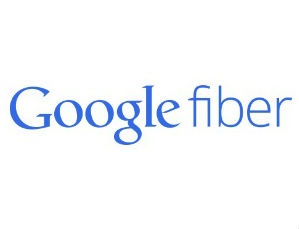Google Fiber Capturing 75% Of Homes Passed In KC: Study
The smarter way to stay on top of the multichannel video marketplace. Sign up below.
You are now subscribed
Your newsletter sign-up was successful

Google Fiber is capturing about 75% of homes passed in the Kansas City area, according to a recent door-to-door survey of about 350 homes commissioned by Bernstein Research.
“[T]he penetration measured by our survey was much higher than we had expected,” Berstein Research analyst Carlos Kirjner wrote in research note issued Tuesday.
Kirjner also said the results of the survey, conducted by Haynes and Company, showed that Google Fiber is having success up and down the economic ladder, tossing cold water on suggestions that Google Fiber is merely “cherry picking” by targeting only higher-income areas with its demand-driven deployment model.
In Kansas City, Google Fiber sells a standalone 1Gbps broadband service for $70 per month, a 1-Gig/pay-TV package that starts at $120 per month, and a “free” Internet service (5 Mbps down by 1 Mbps up stream) in exchange for a $300 construction fee.
While Google Fiber appears to be capturing three-fourths of homes passed in medium-to-high income neighborhoods, the survey also showed that Google’s penetration reached nearly 30% on lower income areas.
“Our survey suggests that Google Fiber has gained a significant foothold in its early Kansas City fiberhoods. Consumers are highly satisfied with Google Fiber service, suggesting its share gains are likely not done yet,” Kirjner wrote, noting that he expects Google Fiber to come back to the most mature, already-deployed “fiberhoods” in the Kansas City area to “drive new waves of installation and even higher penetration.”
Based on the latest survey results, the research firm believes Google Fiber is highly likely to capture half or more of the homes it passes in Kansas City with paid services in three to four years, and at least 10% of the homes passed with its “free” broadband offer. Bernstein Research likewise concluded that Google Fiber is on track to reach or exceed 40% penetration of homes passed with its double-play (pay-TV and 1-Gig broadband) and 1Gbps broadband-only offer, and an additional 10% penetration of homes passed with its free Internet service offer.
The smarter way to stay on top of the multichannel video marketplace. Sign up below.
Kirjner and Bernstein Research do not share the view that Google Fiber is a merely an experiment, a regulatory ploy, or a way to motivate incumbent ISPs to upgrade their networks and ramp up speeds. Instead, they believe Google’s aim is to build a competitive, profitable, fixed network covering a significant portion of U.S. homes.
“We believe that with these penetrations, Kansas City and markets with similar deployment economics would be very profitable to Google,” Kirjner wrote. “[U]nlike consensus, which dismisses Google Fiber, [we] think Google's chances of success are material.”
So far, Google Fiber’s footprint is relatively small, limited to pockets of Kansas City, where it competes primarily with Time Warner Cable and AT&T, and in Provo, Utah (via its acquisition of the iProvo network from the city), where it’s facing off with Comcast and CenturyLink Communications. Google Fiber has also announced that it is exploring an expansion that would potentially cover nine metro markets and up to 34 cities. Google Fiber is expected to announce its selections by the end of 2014.
